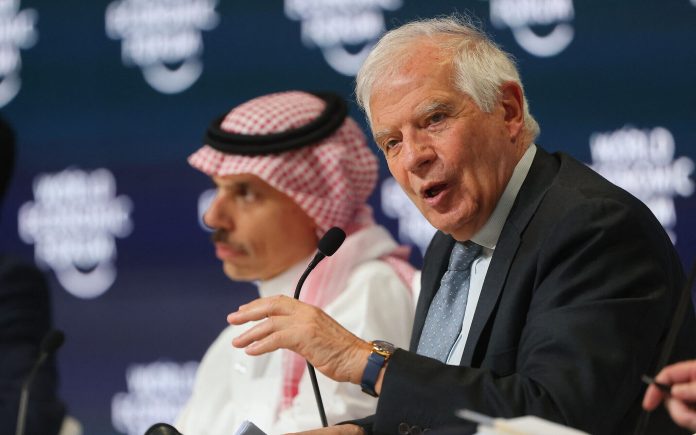EU foreign policy chief Josep Borrell told the Saudi capital Riyadh on the sidelines of the World Economic Forum on Monday that several EU members were expected to recognise Palestinian statehood by the end of May.
However, the spokesman later claimed that his remarks were “slightly over-interpreted” and that the recognition was taking place at the level of individual member states, not a decision by the bloc.
This was said in the context of a wider discussion about the two-state solution, the latest vote in the UN Security Council on admitting Palestine, as a member and an upcoming vote on this same issue in the UN General Assembly.
EU members Ireland, Slovenia, Malta, Norway and Spain have already declared their intention to recognise a Palestinian state. Turkey has stressed that recognising Palestine as a contiguous state on the pre-1967 borders is key to ending the bloodshed in the Middle East.
Reacting to a possible Israeli offensive on Rafah, Andrew Mitchell, Minister of State of the United Kingdom for Development and Africa, stated on Tuesday that Israel’s planned ground operation in Rafah might not be “compliant with international humanitarian law.” George Galloway, a lawmaker and leader of the Workers Party of Britain, criticised him and warned that there could be “the worst bloodbath” since World War II.
We are hours away from a bloodbath that will be that will make Fallujah paled into insignificance that will be the worst bloodbath seen in the world since the Second World War. The minister keeps saying we’re going to press Israel. What are you going to do about it if it happens?
In response, Mitchell claimed the British government was “doing everything it can” to prevent the circumstances Galloway described.
Since the Israel-Hamas war began on October 7, more than 34,500 Palestinians had been killed, with thousands more injured in the mass destruction. The cross-border attack by Hamas claimed 1,200 lives and took around 250 as hostages.
Israel is facing genocide charges at the International Court of Justice. An interim order issued in January demanded that Tel Aviv must guarantee that its forces are not committing acts of genocide and take measures to ensure that humanitarian aid is provided to civilians in Gaza.
